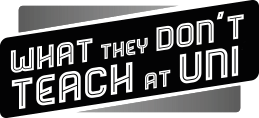Congratulations! You’ve managed to get an interview…What next?
In the run up to an interview you could be forgiven for feeling as if you were actually waiting to be taken to the gallows. That unmistakable cocktail of nervousness, anticipation and dread that fills many a potential employee is a very hard thing to overcome after all. The endless possibilities of what to say and how to behave can and does overwhelm even the bravest people.
But fear not!
There are ways to overcome that fear and there are even ways to make sure it isn’t there in the first place. With the right considerations just about anyone can walk into an interview and ace it. So without further ado, here are 8 things to consider which will make sure that the interviewer remembers you long after you leave the office.
1. Make a good first impression:
Some people will tell you that an employer will know whether they want to hire you 30 seconds into an interview. So make sure to make a good first impression. This means getting the simple things right. Turn up on time, make sure to smile, get the handshake right (firm but not too firm) and above all, dress appropriately. You may wish to follow the old rule whereby you dress for the position one pay grade above you.
These may seem like things that have no bearing on your actual ability to do a job and you’d be right, but it’s surprising how much these intangibles actually matter to an employer. Remember you’re trying to present yourself as somebody that an employer wouldn’t mind working with, not just someone who’s technically capable. In this case, absolutely do sweat the small stuff.

2. Be prepared:
This one cannot be emphasised enough. Preparation is the one area that could really make or break your interview.
This goes beyond memorising your CV although that is important. Being prepared means knowing that certain topics are guaranteed to come up and knowing exactly how you’re going to answer them before you walk in. This is the only way to avoid the dreaded awkward hesitation and will make you come off as calm and confident. Preparation also means knowing that inevitably there are going to be deviations from what you’ve planned and preparing yourself mentally for that challenge. Knowing this in advance means you won’t become flustered.
Above all, practise. It’s as simple as that. The more you do something the better you’ll be at it. Interviews are no exception.
3. Be aware of body language:
You can say a lot without saying anything at all.
This is something a lot of people forget but it can actually make a real impression on an employer. Under no circumstances should you slouch. Make sure you sit upright and pay attention to what’s being said. Equally important is maintaining eye contact. This in particular shows that you’re switched on and engaged in what’s being said. It will also make the interviewer feel as if they are being valued which is crucial.
Do not cross your arms or tuck them into your sides as this comes across as timid. As a general rule the more you can spread your body out, the more impressive you look. Lastly, put your hands on the table as this is a subconscious indication that you’re trustworthy and have nothing to hide. It really works.
If you keep these in mind it will ensure that regardless of what you actually say, there was at least one aspect of yourself that came across really well.
4. Do your research:
If you want to really impress, do your homework on the company you’re applying for. If you can say that you were interested in a particular aspect of the company’s workings before applying, definitely do so. It would be a big plus.
What’s more, it is possible the employer will ask a question relating to an esoteric bit of knowledge about the company intended to catch out those who aren’t fully invested in the job. If you can be the one out of twelve candidates who knew the answer then you better believe they will be impressed.

5. Control your voice:
This is another one that is about coming off well regardless of what you say. While it’s completely natural to be nervous, speaking too quickly and with an unnatural amount of pauses is a good way to ensure that your interviewer won’t take you seriously. Speak slowly and clearly but don’t be patronising. It may seem like a fine line but once again if you practise enough, you should be ok.
Another thing worth paying attention to is your language. Don’t try to sound more intelligent than you are by using words or structures you normally wouldn’t. It will come off as forced and you can guarantee an interviewer will see through it. Also keep in mind that it isn’t a good idea to use slang. Even if you think it makes you sound friendlier it will likely just come across as sloppy.
Remember that as much as anything, you’re trying to show off your personality as well as your ability. Let them see how much of a down to earth, likable person you are.
6. Ask questions:
The reasons for this are twofold. Firstly, it displays enthusiasm and initiative which are two qualities employers can’t get enough of. If you come across as having a genuine interest in what has been said and in the job you’re applying for, your likability goes through the roof.
Secondly, you might actually learn something. If there’s anything you are unsure of, don’t be afraid to ask. This means you avoid the awkward scenario down the line where you get hired and are then asked to do something you pretended to understand, only to be found out.
Although it seems counter-intuitive, employers will like the fact that you’re asking questions about something you don’t understand. It shows an active willingness to learn and it reassures them that you’re not going to mess something up colossally because you were too afraid to ask.
7. Don’t go off topic:
Unless you are applying for a job as a politician, make sure you answer the questions put to you. It may seem obvious but the temptation to go off on a tangent about how fabulous you are has put the nail in the coffin of many a hopeful employee. Particularly if you have put a lot of effort into preparation, it can be tempting to try and fit in everything you had planned to say even if it is not directly relevant. Don’t do this. That is why you should prepare for the unexpected in the first place, so that all your proverbial eggs are not in one basket.
8. Big up your strengths play down your weaknesses:
Everybody has both of these; it is an unavoidable part of human nature. No one expects you to have no weaknesses, even an employer. What they do expect is for your particular strengths and weaknesses to match those required for the job.
If you are asked what your weaknesses are, god forbid you rely on the tired old cliché where you try to make a negative look like a positive. You know the type, “Oh I guess you could fault me on caring too damn much about this job!” Avoid that sort of thing at all costs. Instead, be honest about your flaws but let them see that it’s something you’re working hard on improving. Don’t pretend they don’t exist. This will make them see you as a genuine human being which is a beneficial position to be in believe me.
As far as strengths go, let them have it. Make sure only to do so when appropriate though. Imagine that you’re a salesman and the product you’re selling is yourself. Adopt that kind of mentality and hopefully the interviewer will start to see how invaluable an asset you could potentially be.

So what have we learned?
Believe it or not, it is possible to actually enjoy yourself during an interview. Think of it as a chance to put yourself out there for the whole world to see, or at least the gleaming, successful version of yourself anyway. Do it enough times and you might just start to believe it. With that in mind and with these tools at your disposal, hopefully you realise that if you go about it the right way, there is really no reason to fear a job interview.
